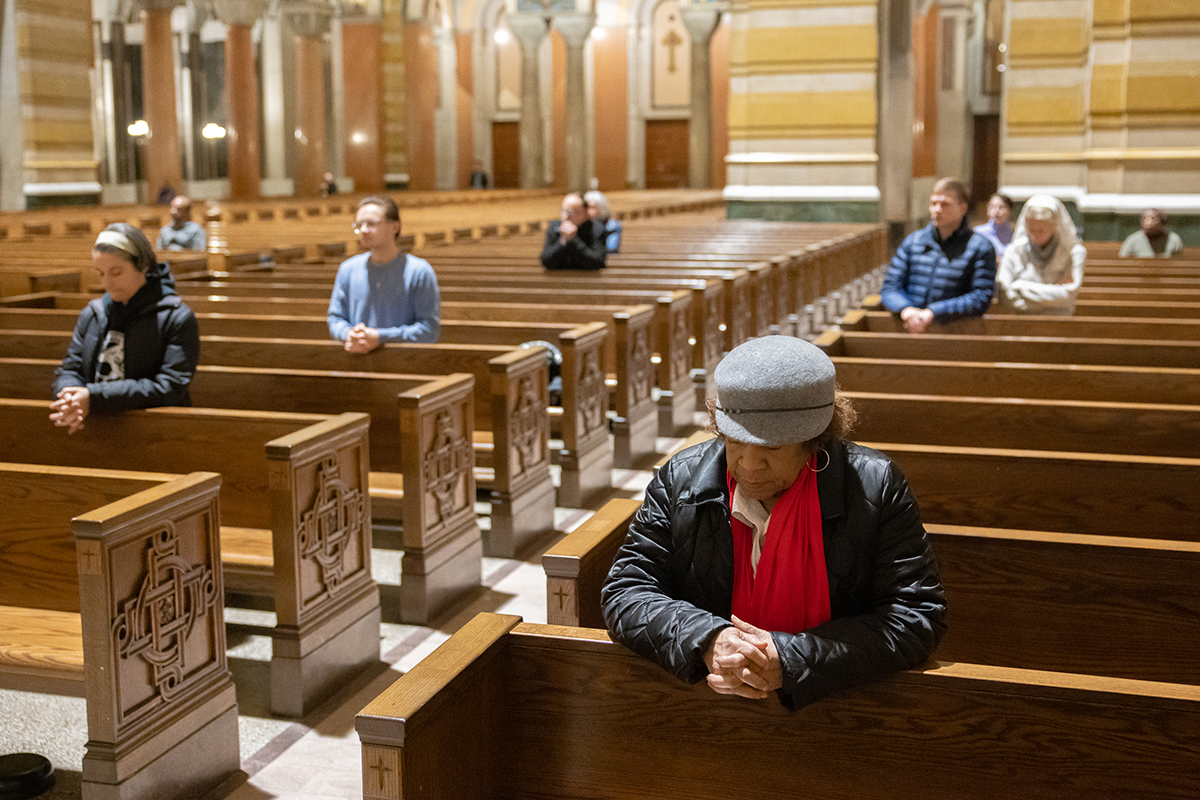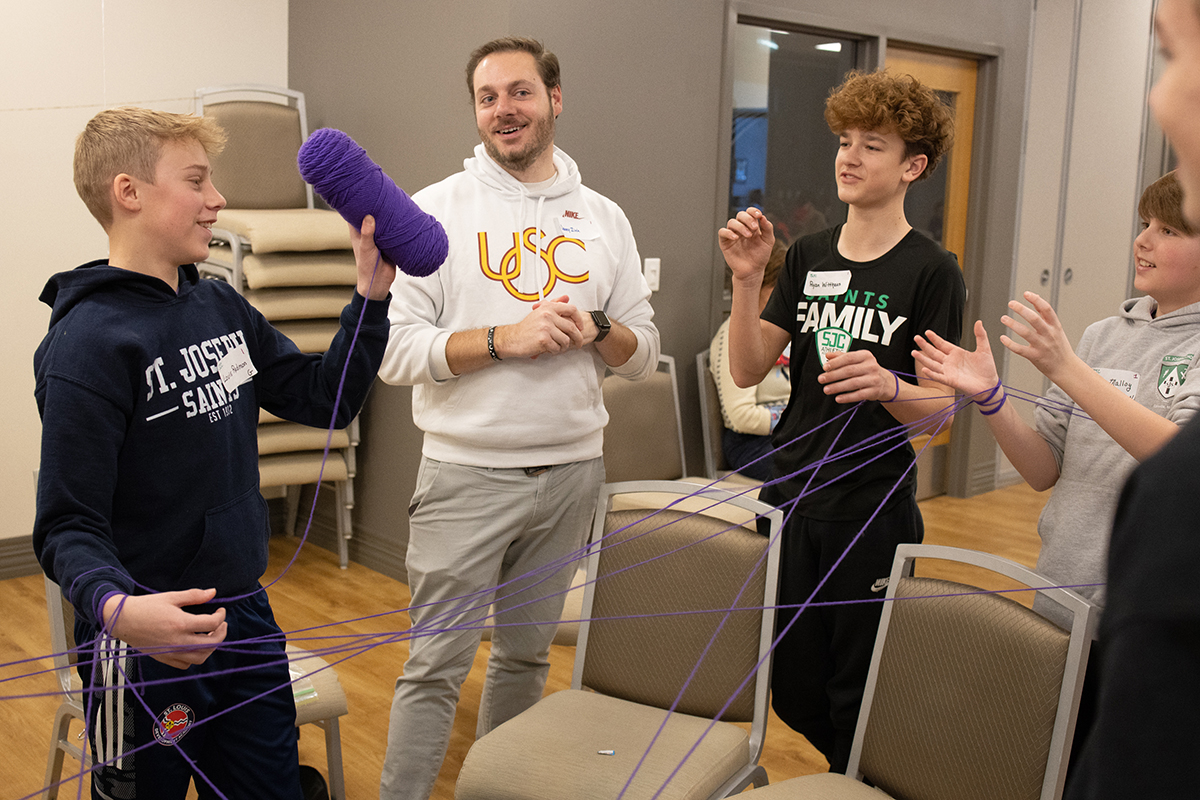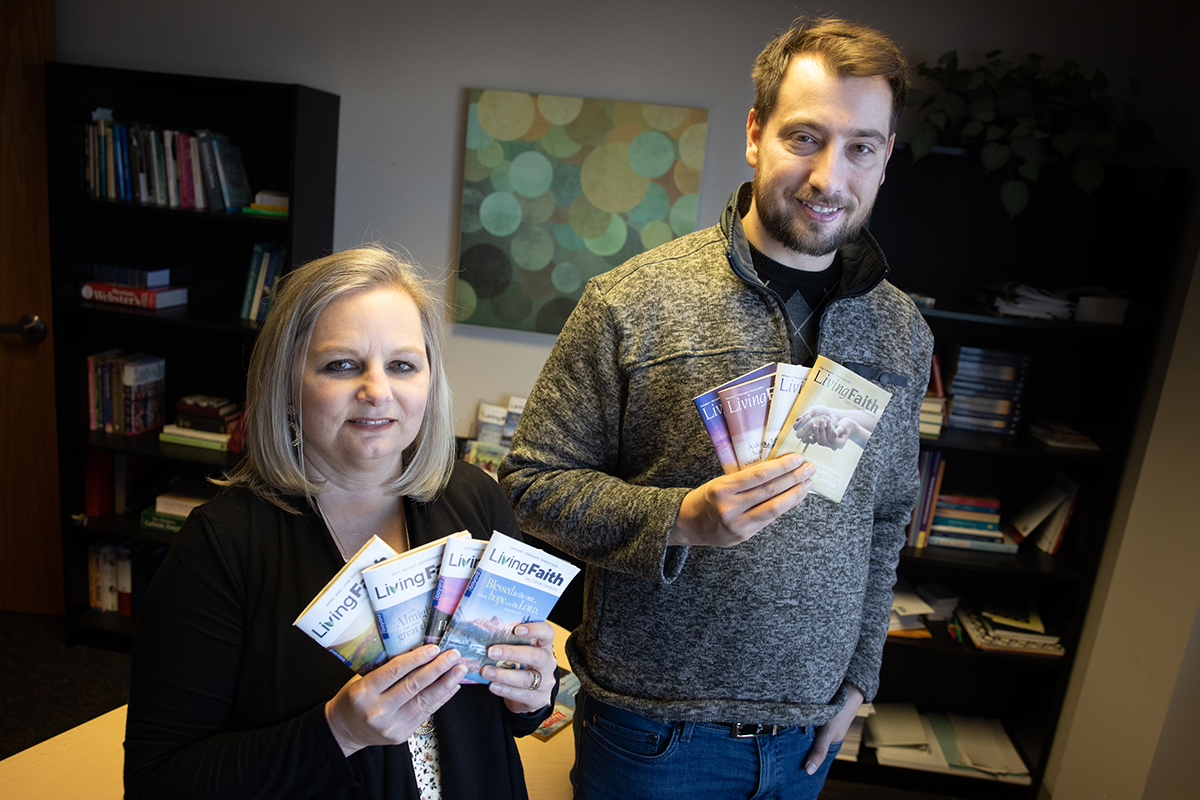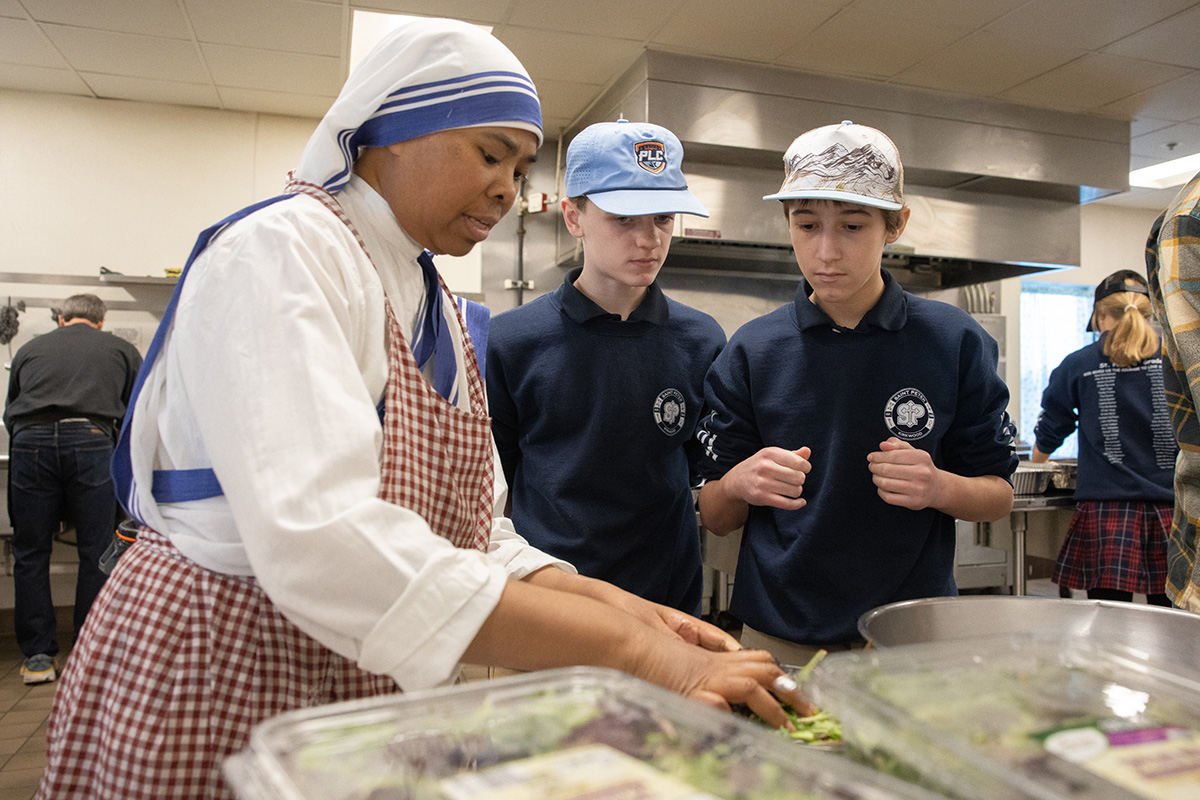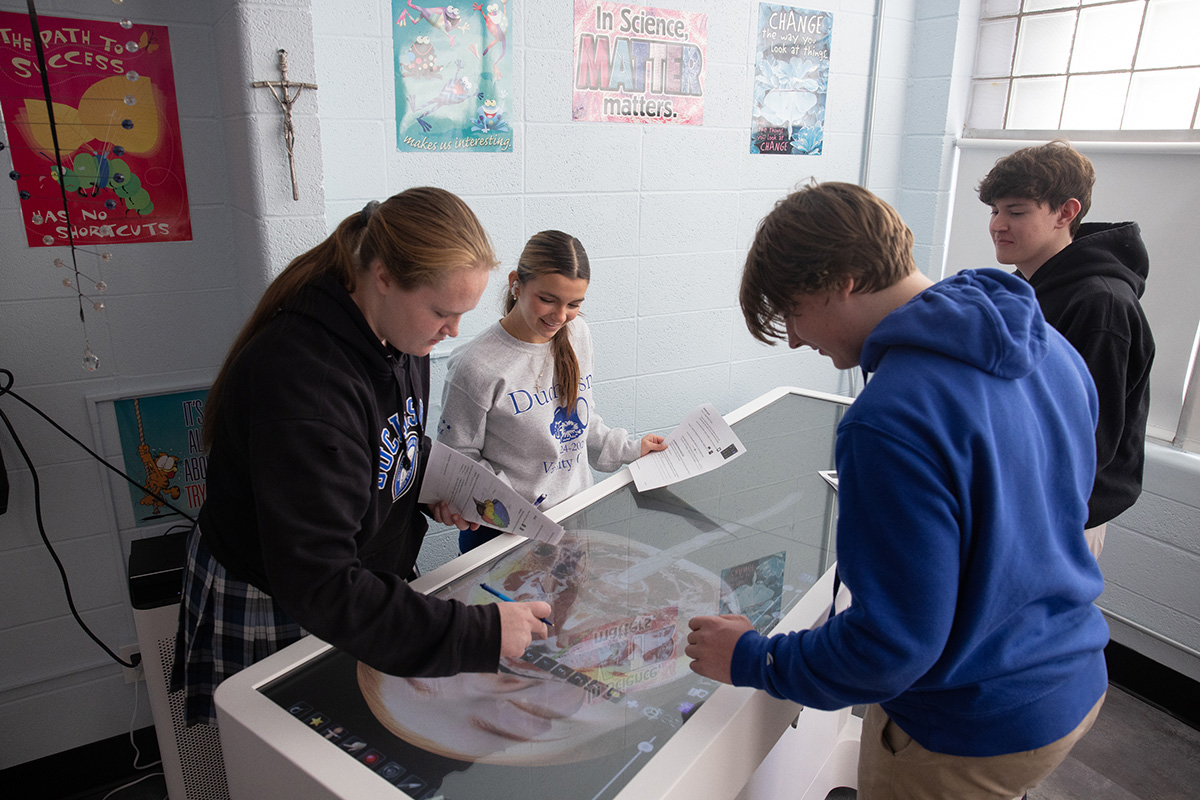Simbang Gabi is a Filipino is a tradition that honors the Blessed Mother in the days leading up to Christmas
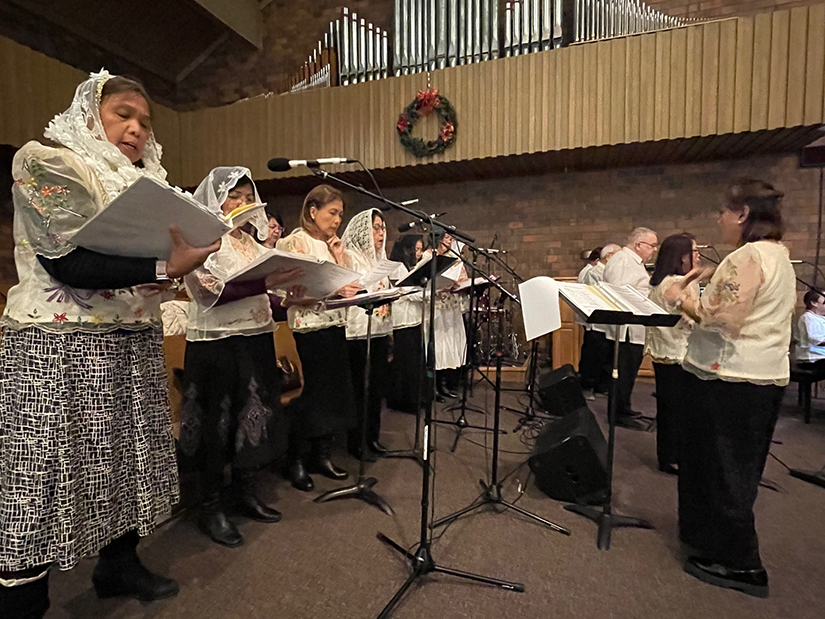
Annual Simbang Gabi novena celebrated before Christmas
A centuries-old tradition in the Philippines always gives Sheila Ocampo pause to reflect on the importance of the Blessed Mother in the days leading up to Christmas.
Growing up in Quezon City, near Manila, Ocampo remembers waking up before dawn to walk with her family and friends to church for the annual celebration of Simbang Gabi. After Mass, everyone would head outside and enjoy warm treats from nearby street food vendors.
“Everybody in the neighborhood would wake up each other at 4 o’clock and walk to church,” said Ocampo, a member of St. Monica Parish in Creve Coeur. “It was fun for us as teens, and it became instilled in us what Simbang Gabi was all about. We grew up with ‘Mama Mary’ as our guide. There was a motherly love, you could see that. The tradition concentrates on the birth of Jesus Christ, and Mother Mary is the biggest part of it.”
Simbang Gabi, which means “Night Mass,” in Filipino, is a novena — a nine-day series of Masses in anticipation of Christmas and to honor the Blessed Mother. The tradition traces back to the arrival of Spanish missionaries in the Philippines about 500 years ago. The novena was held Dec. 14-22 at St. Joseph Church in Manchester, with the final novena Mass celebrated by Archbishop Mitchell T. Rozanski, followed by a feast featuring Filipino delicacies.
In the early days, the pre-Christmas novena Masses were celebrated in honor of the Annunciation. Those Masses were known as “Misa de Gallo” or “rooster Mass,” because they were celebrated at dawn. The early Masses accommodated farmers, who often began work before sunrise to escape the heat in the fields. Pope Sixtus V later declared that Mass should be celebrated before sunrise to accommodate farmers during the harvest season.
The tradition has been celebrated by Filipino Catholics in the St. Louis area for decades. Novena prayers began in homes around the 1960s, and it became more formalized in the 1980s, with Masses celebrated in churches. The novena is organized by the Philippine Liturgical Society, which hosts several liturgical events in the Filipino tradition throughout the year.
In his homily at the opening novena Mass on Dec. 14, Auxiliary Bishop Mark S. Rivituso noted that Simbang Gabi is a special celebration honoring Mary’s motherhood. It’s also a reminder that we are called to imitate her trust in God, when the angel announced to her that she would give birth to Jesus. “Mary did not fear. She trusted in the faithfulness of God in her life,” he said. “She knew that if she was called to be the mother of Jesus, that she also knew that God would give her the help she needed. Mary — full of grace.”
Ocampo said many Filipinos gravitate to Mary’s motherly love and look to her guidance in leading them toward her son, Jesus. “The maternal love is instilled in us growing up,” she said. “When you’re a mom you would always say to your kids about how ‘Mama Mary’ loves Jesus, and that is how a mom should love her kids. Knowing that and learning more about Mary’s life, you tend to appreciate your own mom. We say she will always be our model.”
In 2021, the Filipino Catholic community in St. Louis joined with others worldwide to celebrate the 500th anniversary of Christianity in the Philippines. Christianity came to the shores of the Philippine islands in 1521 when the explorer Ferdinand Magellan, in an attempt to circumnavigate the globe from Spain to India, landed on the tiny island of Limasawain in the central Philippines and converted the natives to Christianity.
Simbang Gabi is one of several Filipino traditions that honor the Blessed Mother and her son Jesus. The Sinulog festival in January commemorates the beginning of Christianization of the Philippine islands and honors the infant Jesus, “Santo Nino de Cebu.”
>> Sinulog festival
Held in January, Sinulog commemorates the beginning of Christianization of the Philippines and honors the infant Jesus, “Santo Nino de Cebu.” The Santo Nino icon was gifted to Queen Juana in 1521 by Ferdinand Magellan upon her baptism into the Catholic faith. There are two Sinulog celebrations held in the St. Louis area:
• Saturday, Jan. 6, at 1 p.m. at Immaculate Conception Church, 7702 Highway N in Dardenne Prairie
• Sunday, Jan. 21, at 1 p.m. at Holy Spirit Church, 3130 Parkwood Lane in Maryland Heights
Mass is celebrated, then a reenactment of the gifting of the Santo Nino icon and Queen Juana dancing with joy, followed by the whole congregation dancing the two-step, back and forth steps with each dancer carrying a Santo Nino statue. After Mass, a feast featuring Filipino delicacies takes place.
A centuries-old tradition in the Philippines always gives Sheila Ocampo pause to reflect on the importance of the Blessed Mother in the days leading up to Christmas. Growing up in … Simbang Gabi is a Filipino is a tradition that honors the Blessed Mother in the days leading up to Christmas
Subscribe to Read All St. Louis Review Stories
All readers receive 5 stories to read free per month. After that, readers will need to be logged in.
If you are currently receive the St. Louis Review at your home or office, please send your name and address (and subscriber id if you know it) to subscriptions@stlouisreview.com to get your login information.
If you are not currently a subscriber to the St. Louis Review, please contact subscriptions@stlouisreview.com for information on how to subscribe.

